AI Survey Automation: How to Leverage AI-generated Survey Insights
AI Survey Automation: How to Leverage AI-generated Survey Insights
AI Survey Automation: How to Leverage AI-generated Survey Insights



What is AI Survey Automation?
AI Survey Automation refers to the use of artificial intelligence technologies to streamline the process of designing, deploying, collecting, and analyzing surveys. Increased Efficiency AI-powered surveys can reduce data processing time by up to 70% compared to traditional methods (Gartner, 2023).
AI conducts repetitive tasks, generates personalized questions, validates data in realtime, and analyzes responses quickly, making the survey process more efficient and effective. AI survey automation transforms traditional methods by reducing human error, speeding up data collection and processing, and providing deeper insights through advanced analytics.
How AI Survey Automation Works
1. Automated Survey Design
AI assists in creating surveys by suggesting relevant questions based on survey goals, previous data, and respondent profiles. AI survey form generators might recommend follow-up questions based on initial responses, ensuring the survey remains engaging and relevant.
2. Adaptive Questioning
AI-native form builders like Metaforms dynamically adjusts questions based on respondent answers, skipping irrelevant questions and personalizing the survey flow. If a respondent indicates dissatisfaction with a product, it might ask for specifics about their experience.
3. Real-Time Data Validation
AI validates responses as they are entered, checking for inconsistencies or incomplete data, and prompting respondents to correct errors. It might detect an unrealistic age entry (e.g., 150 years old) and ask the respondent to confirm or correct the input.
4. Automated Data Analysis
AI analyzes survey data in real-time, using machine learning and natural language processing to identify trends, sentiments, and actionable insights. It generates instant reports highlighting key findings and trends, such as customer satisfaction scores or emerging issues.
5. Integration with CRM and Analytics Tools
AI-powered surveys integrate seamlessly with Customer Relationship Management (CRM) and analytics tools to enrich customer profiles and provide actionable insights. Survey responses can automatically update customer records in a CRM system, providing sales teams with the latest feedback and preferences.
How to Leverage AI-generated Survey Insights
1. Enhanced Customer Segmentation
Use AIgenerated insights to segment customers based on responses, behaviors, and preferences. Customize marketing campaigns and product recommendations to specific segments for higher engagement and conversion rates. AI survey analysis might reveal that a particular segment prefers eco-friendly products, leading to targeted marketing strategies for this group.
2. Improved Product Development
Incorporate customer feedback and sentiment analysis into product development cycles. Develop products that better meet customer needs and expectations, reducing the time to market and increasing success rates. Feedback from AI surveys might indicate a demand for a new feature in an existing product, guiding the development team to prioritize this enhancement.
3. Optimized Marketing Strategies
Utilize insights on customer preferences and behaviors to refine marketing strategies and messages. Increase campaign effectiveness by aligning messages with customer interests and needs. AI might identify that customers are highly responsive to social proof, prompting marketers to include more testimonials in their campaigns.
4. Enhanced Customer Support
Analyze survey data to identify common customer issues and areas for improvement in support services. Improve customer satisfaction by addressing pain points more effectively and proactively. AI might detect recurring complaints about a specific product feature, leading to a focused effort to resolve the issue.
5. Real-Time Decision Making
Use real-time insights from AI surveys to make quicker, data-driven decisions. Respond rapidly to emerging trends and issues, maintaining a competitive edge. Real-time feedback on a marketing campaign's effectiveness might prompt immediate adjustments to optimize performance.
Use Cases of AI Survey Automation
1. Ecommerce
A retail company uses AI surveys to gather feedback on new product launches. The valuable insights from an AI-native survey builder like Metaforms helps identify popular features and areas for improvement, leading to better product iterations and higher sales.
2. Healthcare
A healthcare provider deploys AI surveys to assess patient satisfaction with telemedicine services. AI-driven insights reveal key areas where virtual consultations can be enhanced, improving patient experience and service adoption.
3. Education
An online learning platform utilizes AI surveys to gather student feedback on course content and delivery. The AI survey generator platform refines its curriculum and instructional methods based on student preferences, leading to increased engagement and retention.
4. Financial Services
A bank uses AI surveys to understand customer satisfaction with its mobile banking app. Insights from the surveys help the bank optimize the app’s features and user interface, enhancing customer satisfaction and app usage.
Best Practices for AI Survey Automation
1. Define Clear Objectives
Clearly outline what you want to achieve with your survey to guide AI in generating relevant questions and insights. Specify whether the goal is to gauge customer satisfaction, product feedback, or market trends.
2. Leverage Adaptive Questioning
Use AI to tailor questions based on previous responses, keeping the survey relevant and engaging. If a respondent indicates a preference for a specific product feature, follow-up questions should explore their experiences with that feature.
3. Ensure Data Privacy
Implement robust data privacy measures to protect respondent information and comply with regulations. Use encryption and anonymization techniques to secure survey data.
4. Integrate with Analytics Tools
Connect AI survey tools with your analytics platforms to streamline data flow and enhance reporting. Automatically export survey data to a CRM system to enrich customer profiles and drive targeted marketing efforts.
5. Regularly Update Survey Content
Keep your surveys current by regularly reviewing and updating questions to reflect changing market conditions and objectives. Adjust survey questions to address new product features or emerging industry trends.
Conclusion
AI Survey Automation revolutionizes the way businesses collect, analyze, and act on survey data. By automating the design, deployment, and analysis processes, AI form builder enhances efficiency, accuracy, and engagement, providing deeper insights and faster decision-making. Industries ranging from ecommerce to healthcare benefit from artificial intelligence’s ability to personalize and streamline surveys, driving better customer understanding and business outcomes.
Metaforms.ai exemplifies the cutting-edge capabilities of AI survey automation, offering powerful tools for creating and analyzing surveys that deliver actionable insights and drive business success. With Metaforms, an AI-native form builder, businesses can elevate their survey strategies, gain more precise insights, and make data-driven decisions more swiftly and effectively. Sign-up with Metaforms today.
What is AI Survey Automation?
AI Survey Automation refers to the use of artificial intelligence technologies to streamline the process of designing, deploying, collecting, and analyzing surveys. Increased Efficiency AI-powered surveys can reduce data processing time by up to 70% compared to traditional methods (Gartner, 2023).
AI conducts repetitive tasks, generates personalized questions, validates data in realtime, and analyzes responses quickly, making the survey process more efficient and effective. AI survey automation transforms traditional methods by reducing human error, speeding up data collection and processing, and providing deeper insights through advanced analytics.
How AI Survey Automation Works
1. Automated Survey Design
AI assists in creating surveys by suggesting relevant questions based on survey goals, previous data, and respondent profiles. AI survey form generators might recommend follow-up questions based on initial responses, ensuring the survey remains engaging and relevant.
2. Adaptive Questioning
AI-native form builders like Metaforms dynamically adjusts questions based on respondent answers, skipping irrelevant questions and personalizing the survey flow. If a respondent indicates dissatisfaction with a product, it might ask for specifics about their experience.
3. Real-Time Data Validation
AI validates responses as they are entered, checking for inconsistencies or incomplete data, and prompting respondents to correct errors. It might detect an unrealistic age entry (e.g., 150 years old) and ask the respondent to confirm or correct the input.
4. Automated Data Analysis
AI analyzes survey data in real-time, using machine learning and natural language processing to identify trends, sentiments, and actionable insights. It generates instant reports highlighting key findings and trends, such as customer satisfaction scores or emerging issues.
5. Integration with CRM and Analytics Tools
AI-powered surveys integrate seamlessly with Customer Relationship Management (CRM) and analytics tools to enrich customer profiles and provide actionable insights. Survey responses can automatically update customer records in a CRM system, providing sales teams with the latest feedback and preferences.
How to Leverage AI-generated Survey Insights
1. Enhanced Customer Segmentation
Use AIgenerated insights to segment customers based on responses, behaviors, and preferences. Customize marketing campaigns and product recommendations to specific segments for higher engagement and conversion rates. AI survey analysis might reveal that a particular segment prefers eco-friendly products, leading to targeted marketing strategies for this group.
2. Improved Product Development
Incorporate customer feedback and sentiment analysis into product development cycles. Develop products that better meet customer needs and expectations, reducing the time to market and increasing success rates. Feedback from AI surveys might indicate a demand for a new feature in an existing product, guiding the development team to prioritize this enhancement.
3. Optimized Marketing Strategies
Utilize insights on customer preferences and behaviors to refine marketing strategies and messages. Increase campaign effectiveness by aligning messages with customer interests and needs. AI might identify that customers are highly responsive to social proof, prompting marketers to include more testimonials in their campaigns.
4. Enhanced Customer Support
Analyze survey data to identify common customer issues and areas for improvement in support services. Improve customer satisfaction by addressing pain points more effectively and proactively. AI might detect recurring complaints about a specific product feature, leading to a focused effort to resolve the issue.
5. Real-Time Decision Making
Use real-time insights from AI surveys to make quicker, data-driven decisions. Respond rapidly to emerging trends and issues, maintaining a competitive edge. Real-time feedback on a marketing campaign's effectiveness might prompt immediate adjustments to optimize performance.
Use Cases of AI Survey Automation
1. Ecommerce
A retail company uses AI surveys to gather feedback on new product launches. The valuable insights from an AI-native survey builder like Metaforms helps identify popular features and areas for improvement, leading to better product iterations and higher sales.
2. Healthcare
A healthcare provider deploys AI surveys to assess patient satisfaction with telemedicine services. AI-driven insights reveal key areas where virtual consultations can be enhanced, improving patient experience and service adoption.
3. Education
An online learning platform utilizes AI surveys to gather student feedback on course content and delivery. The AI survey generator platform refines its curriculum and instructional methods based on student preferences, leading to increased engagement and retention.
4. Financial Services
A bank uses AI surveys to understand customer satisfaction with its mobile banking app. Insights from the surveys help the bank optimize the app’s features and user interface, enhancing customer satisfaction and app usage.
Best Practices for AI Survey Automation
1. Define Clear Objectives
Clearly outline what you want to achieve with your survey to guide AI in generating relevant questions and insights. Specify whether the goal is to gauge customer satisfaction, product feedback, or market trends.
2. Leverage Adaptive Questioning
Use AI to tailor questions based on previous responses, keeping the survey relevant and engaging. If a respondent indicates a preference for a specific product feature, follow-up questions should explore their experiences with that feature.
3. Ensure Data Privacy
Implement robust data privacy measures to protect respondent information and comply with regulations. Use encryption and anonymization techniques to secure survey data.
4. Integrate with Analytics Tools
Connect AI survey tools with your analytics platforms to streamline data flow and enhance reporting. Automatically export survey data to a CRM system to enrich customer profiles and drive targeted marketing efforts.
5. Regularly Update Survey Content
Keep your surveys current by regularly reviewing and updating questions to reflect changing market conditions and objectives. Adjust survey questions to address new product features or emerging industry trends.
Conclusion
AI Survey Automation revolutionizes the way businesses collect, analyze, and act on survey data. By automating the design, deployment, and analysis processes, AI form builder enhances efficiency, accuracy, and engagement, providing deeper insights and faster decision-making. Industries ranging from ecommerce to healthcare benefit from artificial intelligence’s ability to personalize and streamline surveys, driving better customer understanding and business outcomes.
Metaforms.ai exemplifies the cutting-edge capabilities of AI survey automation, offering powerful tools for creating and analyzing surveys that deliver actionable insights and drive business success. With Metaforms, an AI-native form builder, businesses can elevate their survey strategies, gain more precise insights, and make data-driven decisions more swiftly and effectively. Sign-up with Metaforms today.
What is AI Survey Automation?
AI Survey Automation refers to the use of artificial intelligence technologies to streamline the process of designing, deploying, collecting, and analyzing surveys. Increased Efficiency AI-powered surveys can reduce data processing time by up to 70% compared to traditional methods (Gartner, 2023).
AI conducts repetitive tasks, generates personalized questions, validates data in realtime, and analyzes responses quickly, making the survey process more efficient and effective. AI survey automation transforms traditional methods by reducing human error, speeding up data collection and processing, and providing deeper insights through advanced analytics.
How AI Survey Automation Works
1. Automated Survey Design
AI assists in creating surveys by suggesting relevant questions based on survey goals, previous data, and respondent profiles. AI survey form generators might recommend follow-up questions based on initial responses, ensuring the survey remains engaging and relevant.
2. Adaptive Questioning
AI-native form builders like Metaforms dynamically adjusts questions based on respondent answers, skipping irrelevant questions and personalizing the survey flow. If a respondent indicates dissatisfaction with a product, it might ask for specifics about their experience.
3. Real-Time Data Validation
AI validates responses as they are entered, checking for inconsistencies or incomplete data, and prompting respondents to correct errors. It might detect an unrealistic age entry (e.g., 150 years old) and ask the respondent to confirm or correct the input.
4. Automated Data Analysis
AI analyzes survey data in real-time, using machine learning and natural language processing to identify trends, sentiments, and actionable insights. It generates instant reports highlighting key findings and trends, such as customer satisfaction scores or emerging issues.
5. Integration with CRM and Analytics Tools
AI-powered surveys integrate seamlessly with Customer Relationship Management (CRM) and analytics tools to enrich customer profiles and provide actionable insights. Survey responses can automatically update customer records in a CRM system, providing sales teams with the latest feedback and preferences.
How to Leverage AI-generated Survey Insights
1. Enhanced Customer Segmentation
Use AIgenerated insights to segment customers based on responses, behaviors, and preferences. Customize marketing campaigns and product recommendations to specific segments for higher engagement and conversion rates. AI survey analysis might reveal that a particular segment prefers eco-friendly products, leading to targeted marketing strategies for this group.
2. Improved Product Development
Incorporate customer feedback and sentiment analysis into product development cycles. Develop products that better meet customer needs and expectations, reducing the time to market and increasing success rates. Feedback from AI surveys might indicate a demand for a new feature in an existing product, guiding the development team to prioritize this enhancement.
3. Optimized Marketing Strategies
Utilize insights on customer preferences and behaviors to refine marketing strategies and messages. Increase campaign effectiveness by aligning messages with customer interests and needs. AI might identify that customers are highly responsive to social proof, prompting marketers to include more testimonials in their campaigns.
4. Enhanced Customer Support
Analyze survey data to identify common customer issues and areas for improvement in support services. Improve customer satisfaction by addressing pain points more effectively and proactively. AI might detect recurring complaints about a specific product feature, leading to a focused effort to resolve the issue.
5. Real-Time Decision Making
Use real-time insights from AI surveys to make quicker, data-driven decisions. Respond rapidly to emerging trends and issues, maintaining a competitive edge. Real-time feedback on a marketing campaign's effectiveness might prompt immediate adjustments to optimize performance.
Use Cases of AI Survey Automation
1. Ecommerce
A retail company uses AI surveys to gather feedback on new product launches. The valuable insights from an AI-native survey builder like Metaforms helps identify popular features and areas for improvement, leading to better product iterations and higher sales.
2. Healthcare
A healthcare provider deploys AI surveys to assess patient satisfaction with telemedicine services. AI-driven insights reveal key areas where virtual consultations can be enhanced, improving patient experience and service adoption.
3. Education
An online learning platform utilizes AI surveys to gather student feedback on course content and delivery. The AI survey generator platform refines its curriculum and instructional methods based on student preferences, leading to increased engagement and retention.
4. Financial Services
A bank uses AI surveys to understand customer satisfaction with its mobile banking app. Insights from the surveys help the bank optimize the app’s features and user interface, enhancing customer satisfaction and app usage.
Best Practices for AI Survey Automation
1. Define Clear Objectives
Clearly outline what you want to achieve with your survey to guide AI in generating relevant questions and insights. Specify whether the goal is to gauge customer satisfaction, product feedback, or market trends.
2. Leverage Adaptive Questioning
Use AI to tailor questions based on previous responses, keeping the survey relevant and engaging. If a respondent indicates a preference for a specific product feature, follow-up questions should explore their experiences with that feature.
3. Ensure Data Privacy
Implement robust data privacy measures to protect respondent information and comply with regulations. Use encryption and anonymization techniques to secure survey data.
4. Integrate with Analytics Tools
Connect AI survey tools with your analytics platforms to streamline data flow and enhance reporting. Automatically export survey data to a CRM system to enrich customer profiles and drive targeted marketing efforts.
5. Regularly Update Survey Content
Keep your surveys current by regularly reviewing and updating questions to reflect changing market conditions and objectives. Adjust survey questions to address new product features or emerging industry trends.
Conclusion
AI Survey Automation revolutionizes the way businesses collect, analyze, and act on survey data. By automating the design, deployment, and analysis processes, AI form builder enhances efficiency, accuracy, and engagement, providing deeper insights and faster decision-making. Industries ranging from ecommerce to healthcare benefit from artificial intelligence’s ability to personalize and streamline surveys, driving better customer understanding and business outcomes.
Metaforms.ai exemplifies the cutting-edge capabilities of AI survey automation, offering powerful tools for creating and analyzing surveys that deliver actionable insights and drive business success. With Metaforms, an AI-native form builder, businesses can elevate their survey strategies, gain more precise insights, and make data-driven decisions more swiftly and effectively. Sign-up with Metaforms today.
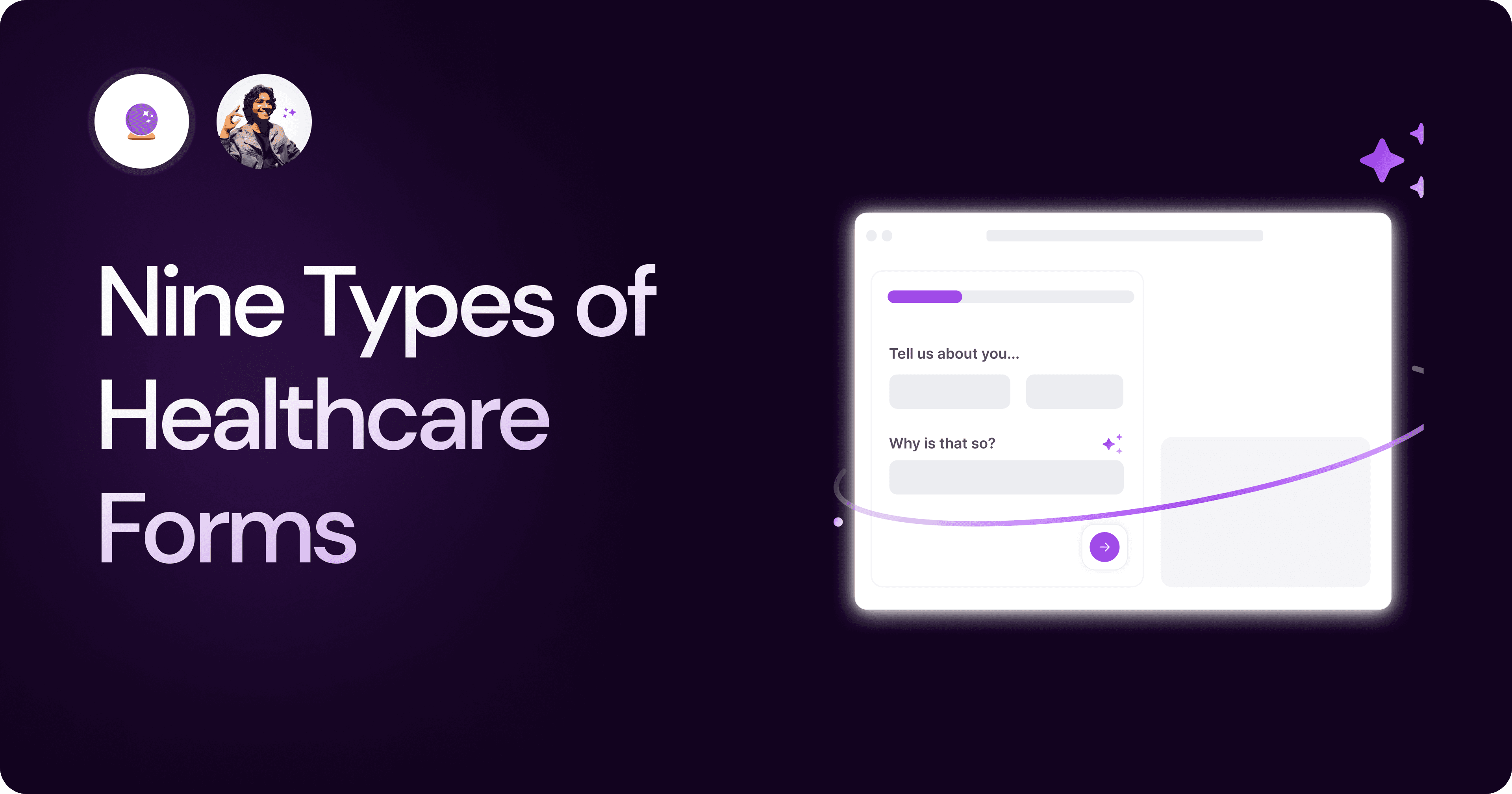
Nine Types of Healthcare and Medical Forms.
Medical forms are a must-have for any healthcare business or practitioner. Learn about the different kinds of medical and healthcare forms.
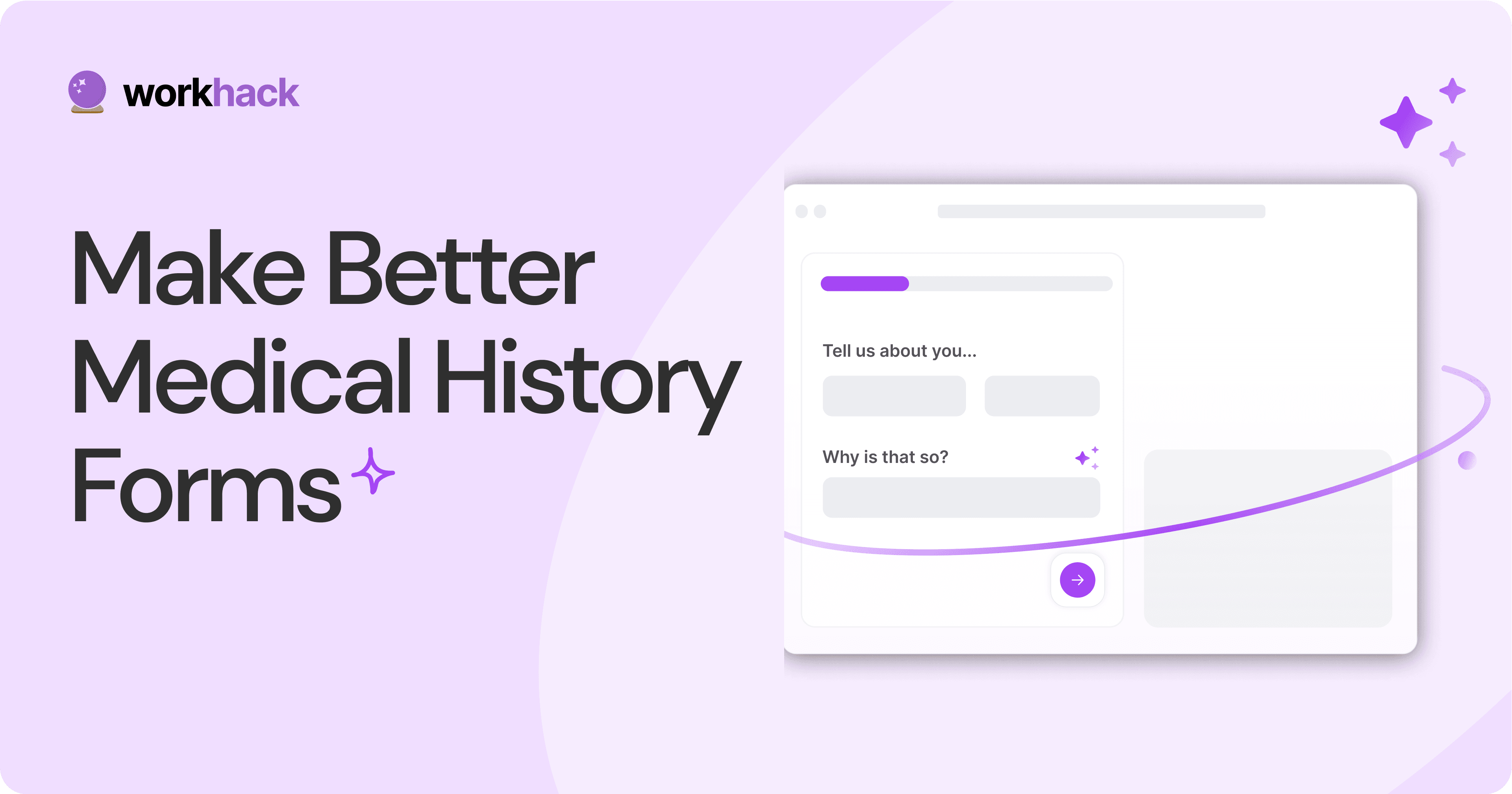
4 Tips for Better Medical History Forms.
Medical history forms are central to patient care, onboarding, and medical administration records. Learn how to make them easier to fill.
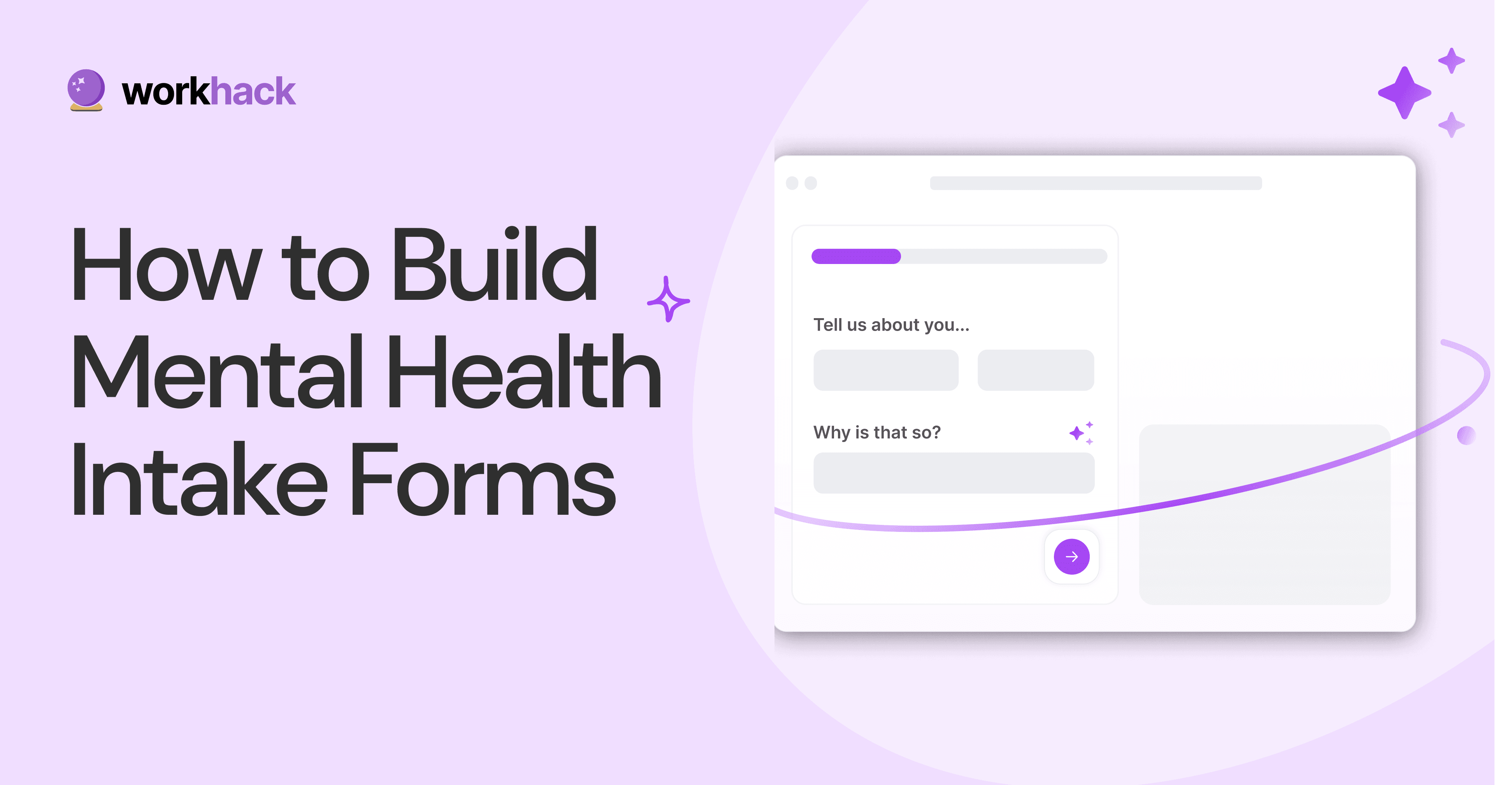
How to Build Mental Health Intake Forms?
Mental health intake forms are not like patient intake forms. Mental health intake forms deal with far more sensitive data and have specific design methods.
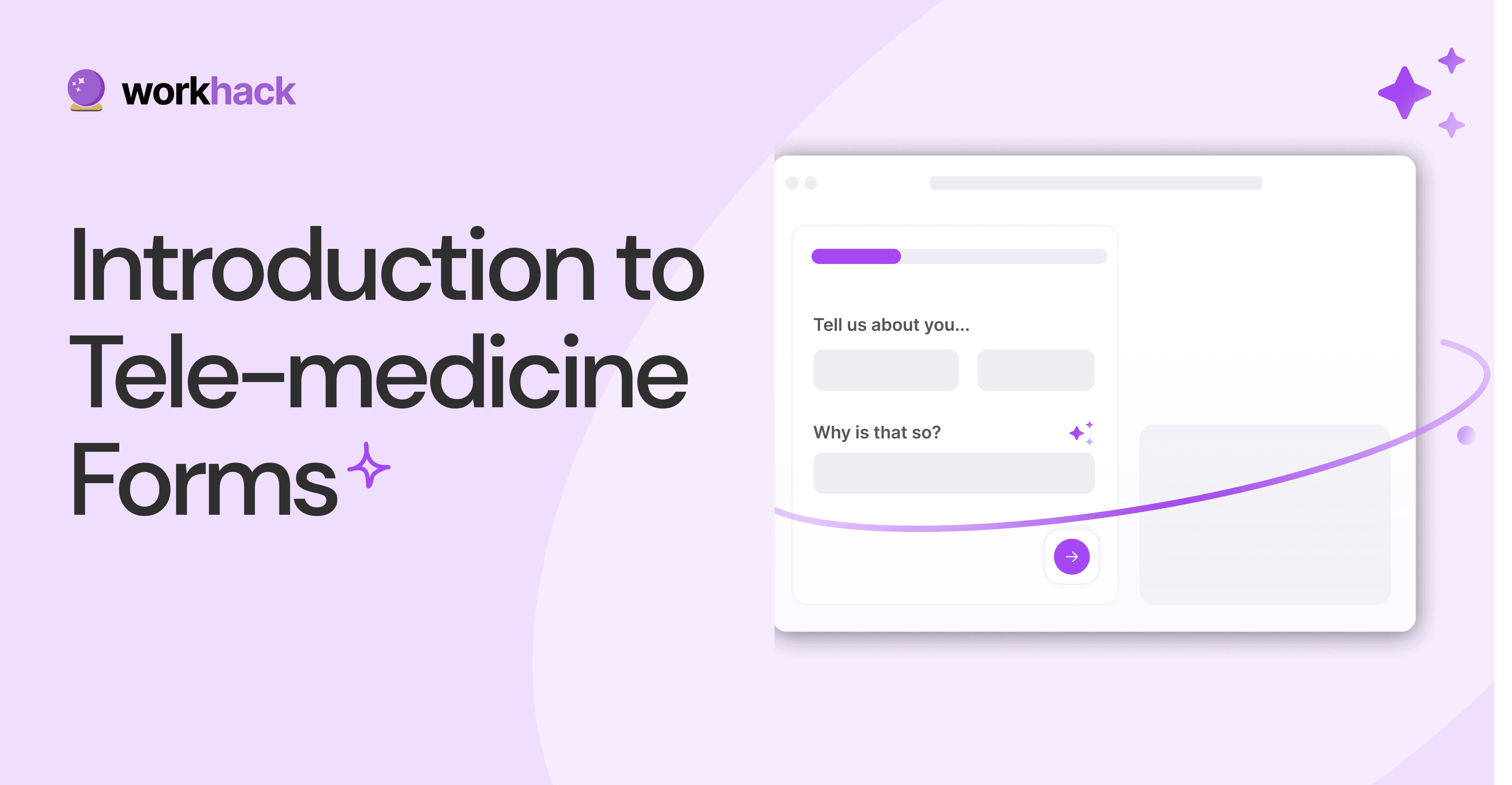
What, Why and How of Telemedicine Forms.
Telemedicine is on the rise and with different form builders out there, which one best suits your needs as a healthcare services provider?
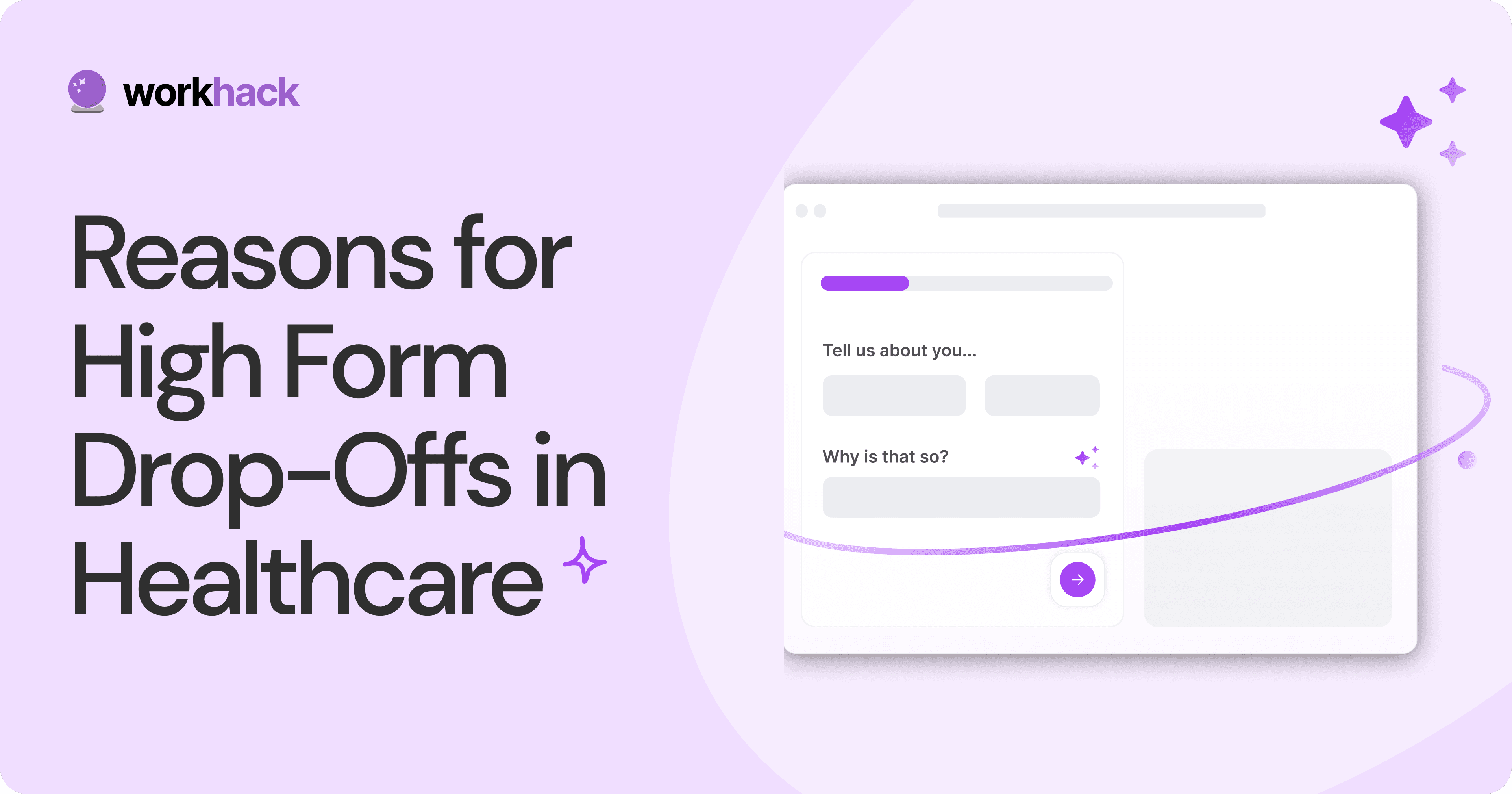
3 Reasons for Major Drop-Offs in Medical Forms.
No matter which healthcare form we pick, there are major drop-off reasons. We shall dive into the top 3 and learn how to resolve them in your next form.
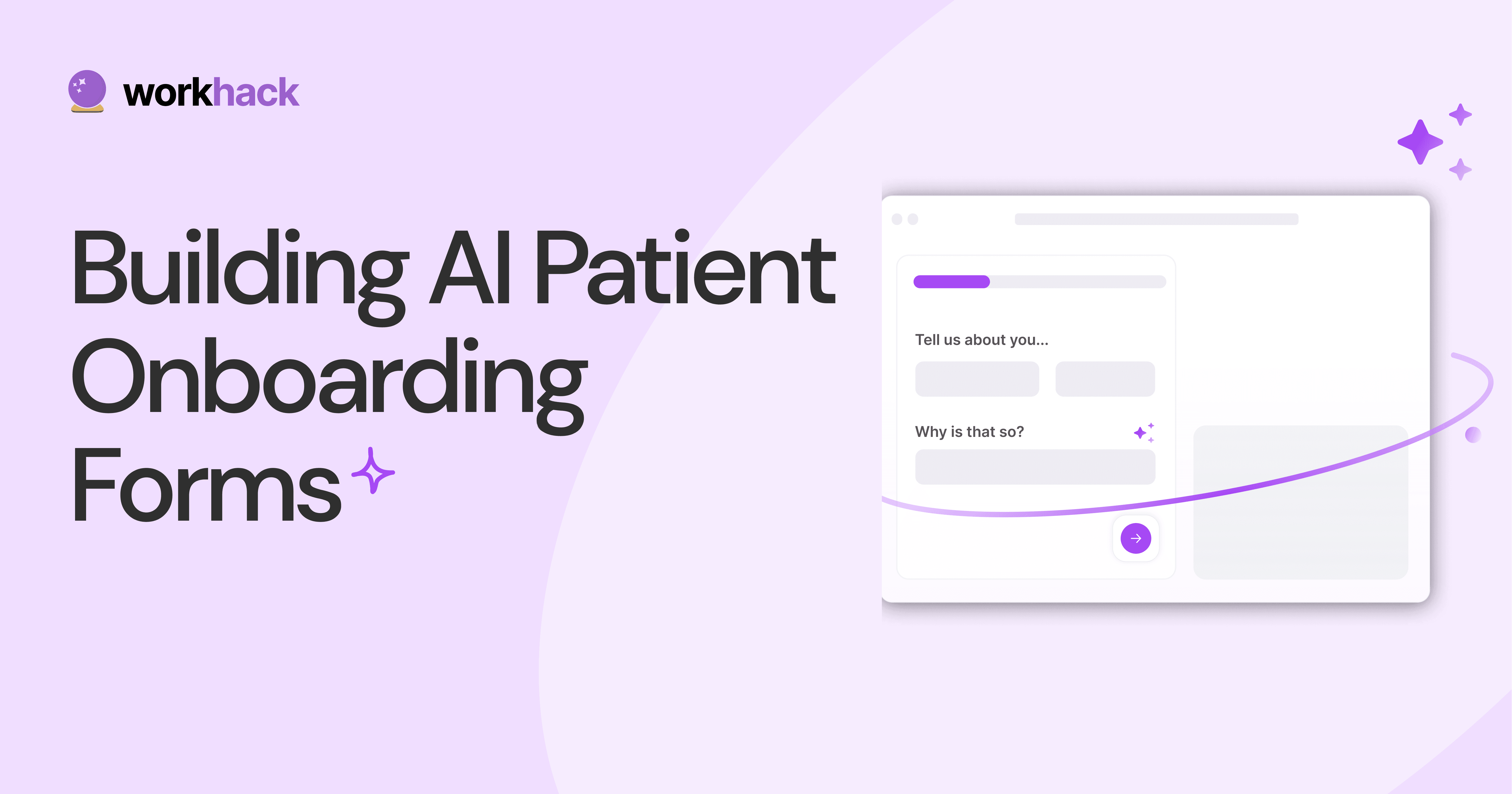
Patient Onboarding Forms - From Click to Clinic.
Patient onboarding forms are the first touchpoint for patients; getting this right for higher conversion rates is a must-have. Learn how to perfect them now.
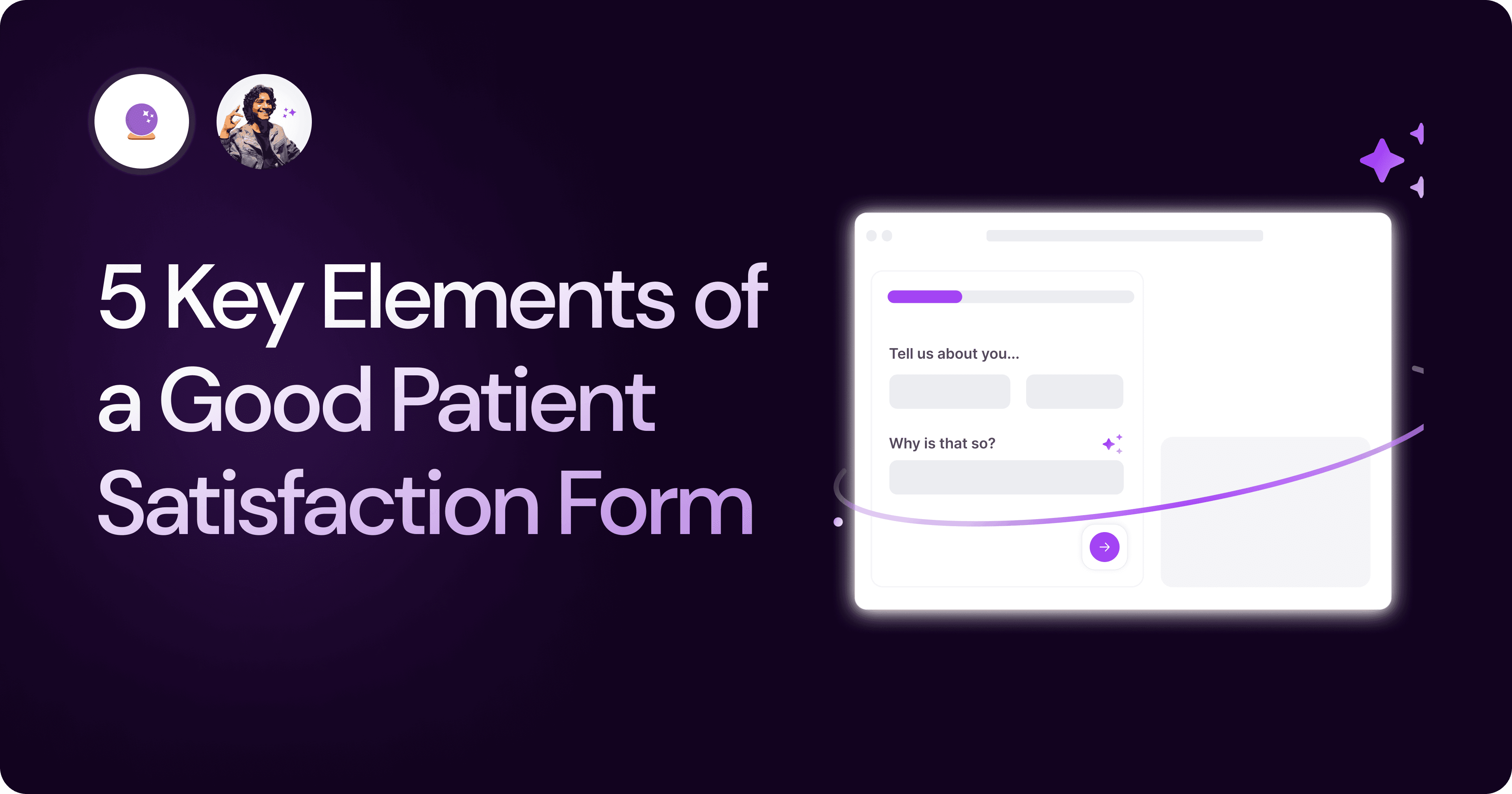
5 Key Parts of a Good Patient Satisfaction Form.
The goal of patient satisfaction surveys is to course-correct the services of a healthcare provider. Patient feedback leads to a culture of patient-centric care.
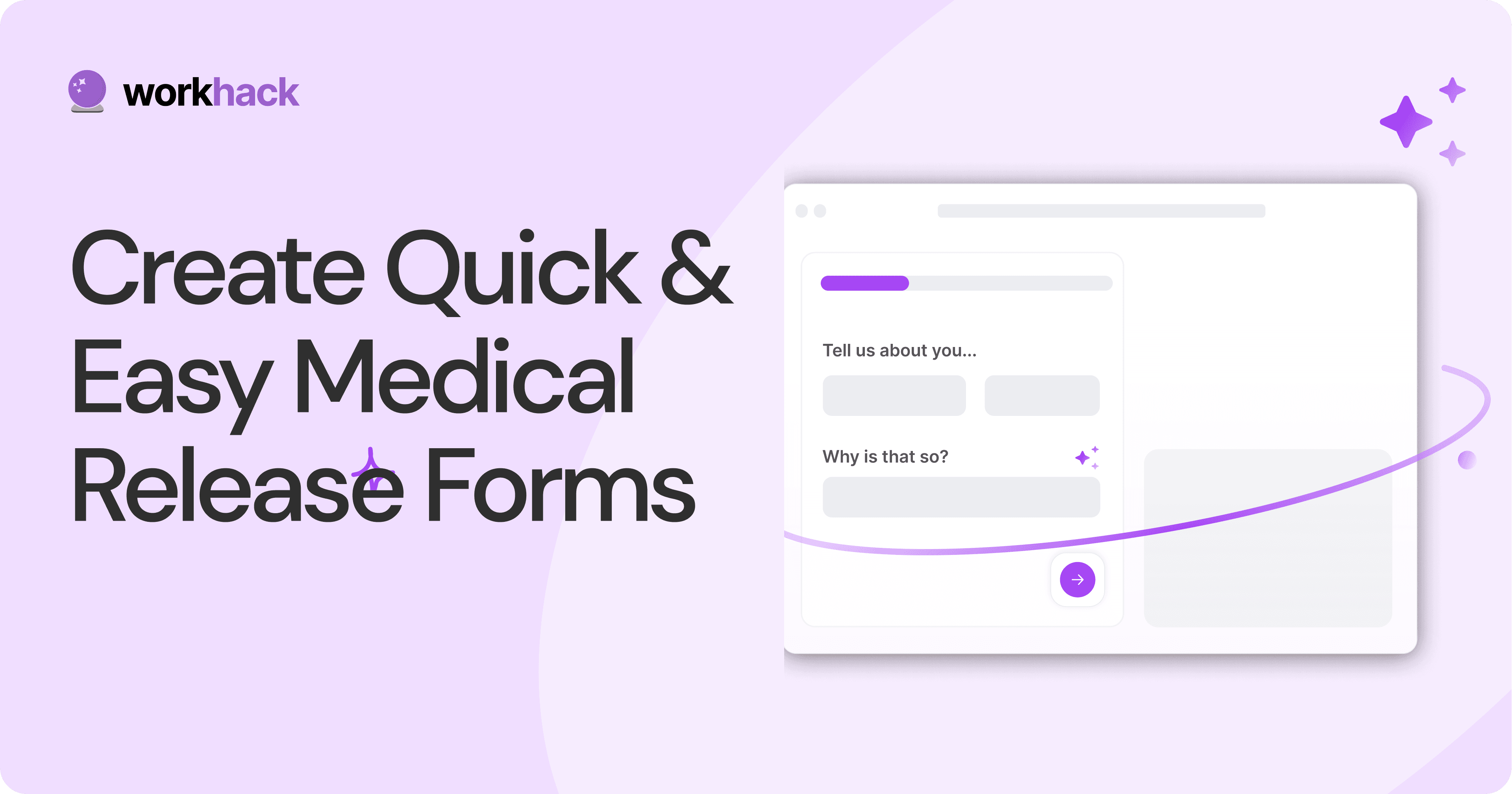
Build Quick and Easy Medical Release Forms.
Every HIPAA-compliant healthcare provider comes across medical release forms that involve details from medical history forms. Can they be shipped fast? Yes.

Nine Types of Healthcare and Medical Forms.
Medical forms are a must-have for any healthcare business or practitioner. Learn about the different kinds of medical and healthcare forms.

4 Tips for Better Medical History Forms.
Medical history forms are central to patient care, onboarding, and medical administration records. Learn how to make them easier to fill.

How to Build Mental Health Intake Forms?
Mental health intake forms are not like patient intake forms. Mental health intake forms deal with far more sensitive data and have specific design methods.

What, Why and How of Telemedicine Forms.
Telemedicine is on the rise and with different form builders out there, which one best suits your needs as a healthcare services provider?

3 Reasons for Major Drop-Offs in Medical Forms.
No matter which healthcare form we pick, there are major drop-off reasons. We shall dive into the top 3 and learn how to resolve them in your next form.

Patient Onboarding Forms - From Click to Clinic.
Patient onboarding forms are the first touchpoint for patients; getting this right for higher conversion rates is a must-have. Learn how to perfect them now.

5 Key Parts of a Good Patient Satisfaction Form.
The goal of patient satisfaction surveys is to course-correct the services of a healthcare provider. Patient feedback leads to a culture of patient-centric care.

Build Quick and Easy Medical Release Forms.
Every HIPAA-compliant healthcare provider comes across medical release forms that involve details from medical history forms. Can they be shipped fast? Yes.

Nine Types of Healthcare and Medical Forms.
Medical forms are a must-have for any healthcare business or practitioner. Learn about the different kinds of medical and healthcare forms.

4 Tips for Better Medical History Forms.
Medical history forms are central to patient care, onboarding, and medical administration records. Learn how to make them easier to fill.

How to Build Mental Health Intake Forms?
Mental health intake forms are not like patient intake forms. Mental health intake forms deal with far more sensitive data and have specific design methods.

What, Why and How of Telemedicine Forms.
Telemedicine is on the rise and with different form builders out there, which one best suits your needs as a healthcare services provider?

3 Reasons for Major Drop-Offs in Medical Forms.
No matter which healthcare form we pick, there are major drop-off reasons. We shall dive into the top 3 and learn how to resolve them in your next form.

Patient Onboarding Forms - From Click to Clinic.
Patient onboarding forms are the first touchpoint for patients; getting this right for higher conversion rates is a must-have. Learn how to perfect them now.

5 Key Parts of a Good Patient Satisfaction Form.
The goal of patient satisfaction surveys is to course-correct the services of a healthcare provider. Patient feedback leads to a culture of patient-centric care.

Build Quick and Easy Medical Release Forms.
Every HIPAA-compliant healthcare provider comes across medical release forms that involve details from medical history forms. Can they be shipped fast? Yes.

Nine Types of Healthcare and Medical Forms.
Medical forms are a must-have for any healthcare business or practitioner. Learn about the different kinds of medical and healthcare forms.

4 Tips for Better Medical History Forms.
Medical history forms are central to patient care, onboarding, and medical administration records. Learn how to make them easier to fill.

How to Build Mental Health Intake Forms?
Mental health intake forms are not like patient intake forms. Mental health intake forms deal with far more sensitive data and have specific design methods.

What, Why and How of Telemedicine Forms.
Telemedicine is on the rise and with different form builders out there, which one best suits your needs as a healthcare services provider?

3 Reasons for Major Drop-Offs in Medical Forms.
No matter which healthcare form we pick, there are major drop-off reasons. We shall dive into the top 3 and learn how to resolve them in your next form.

Patient Onboarding Forms - From Click to Clinic.
Patient onboarding forms are the first touchpoint for patients; getting this right for higher conversion rates is a must-have. Learn how to perfect them now.

5 Key Parts of a Good Patient Satisfaction Form.
The goal of patient satisfaction surveys is to course-correct the services of a healthcare provider. Patient feedback leads to a culture of patient-centric care.

Build Quick and Easy Medical Release Forms.
Every HIPAA-compliant healthcare provider comes across medical release forms that involve details from medical history forms. Can they be shipped fast? Yes.
Subscribe to stay updated.
Subscribe to stay updated.
Subscribe to stay updated.
HC

HC

HC

HC

70+ people from across industries read our emails.
HC

HC

70+ people from across industries read our emails.
HC

HC

HC

70+ people from across industries read our emails.




Bangalore, India / San Francisco, US
WorkHack Inc. 2023
Bangalore, India
San Francisco, US
WorkHack Inc. 2023
WorkHack Inc. 2023
Bangalore, India / San Francisco, US
WorkHack Inc. 2023
Bangalore, India / San Francisco, US



